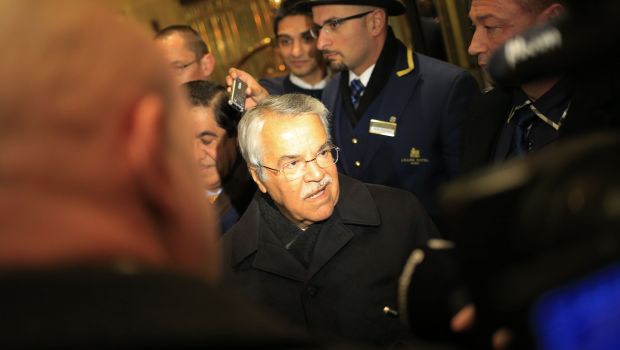
Saudia Arabia’s Minister of Petroleum and Mineral Resources, Ali AI-Naimi (C), arrives at the Grand Hotel in Vienna on December 2, 2013, prior to the start 164th meeting of OPEC, held in Vienna on December 4. (AFP PHOTO/ALEXANDER KLEIN)
“Why should I cut production?” Saudi Arabia’s Minister of Petroleum and Mineral Resources, Ali Al-Naimi, said during a UN meeting on global climate change in the Peruvian capital Lima on Wednesday.
Oil prices fell below 65 US dollar per barrel on Wednesday, sliding to their lowest level since September 2009, as the Organization of Petroleum Exporting Countries (OPEC) predicted a production surplus in its latest monthly report.
In response to a question about whether Saudi Arabia, the world’s largest oil exporter, will cut down production, the minister said: “This is a market and I’m selling in a market. Why should I cut?” Markets will correct themselves, the minister maintained.
The minister questioned the need for a reduction of output, arguing that his country’s daily production during November, ranging between 9.6 and 9.7 million barrels, is in line with its October estimates.
Oil prices ware expected to remain under pressure for the next few days after OPEC reduced its estimate for 2015 demand on Wednesday.
Global demand will grow by 1.12 million bpd over 2014’s figures, the organization’s report predicted, averaging 92.26 million bpd in 2015, while estimating that production from non-member countries will grow by 1.36 million bpd.
The latest announcement also follows on the heels of Saudi Arabia and other GCC states refusing to reduce production in late November, after oil prices lost 35 per cent of their value.
